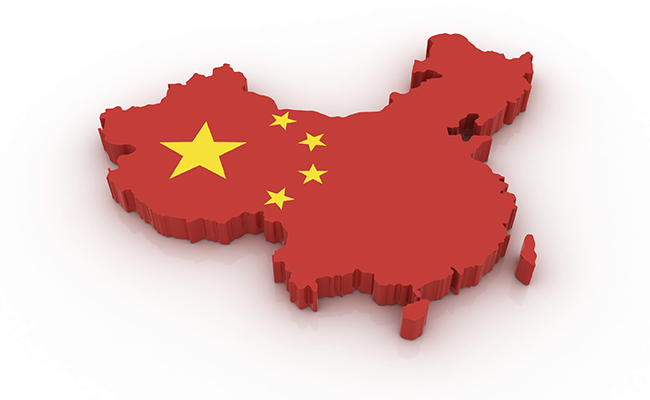The week that was: China GDP growth falls to 7.4%; government may ease controls on housing market; and Tencent to bring popular game Candy Crush to WeChat.
China’s growth falls short of the target
China’s first quarter GDP growth is not so glamorous—in fact, the 7.4% rate is an 18-month low, according to The Wall Street Journal. To break the number down: fixed-asset investment grew by 17.6%, 3.3% slower than the rate last year; exports fell by 3.4% while imports increased slightly by 1.6%; retail grew by 12% compared with the first quarter in 2013.
While China remains an investment and exports-led economy, the picture is changing, said analysts, who believe that the slowdown is a carefully managed trend to shift the country’s growth model towards consumption. The government didn’t release data on how much consumption contributed to the first quarter growth; in 2013, 50% of economic growth was attributed to Chinese consumers, while 54.4% was a result of investment (net export was -4.4%).
One of China’s top officials defended the state of the country’s economy. Over the weekend, Chinese Vice-Finance Minister Zhu Guangyao said at the International Monetary Fund (IMF) and World Bank meetings that the IMF “also need(s) reform” on “some of the methodology used and some traditional thinking”. “If your policy suggestion is (to be) a valuable suggestion, you must base it on reality,” Zhu told the press, according to Reuters. At the beginning of the meetings, IMF Managing Director Christine Lagarde warned about the risk of a “hard landing” in China due to the economy’s indebtedness and urged the Xi administration to rein in its shadow banking system.
China to loosen housing controls?
The cooling of China’s real estate market may prompt the government to ease controls on the industry, Bloomberg reported earlier this week.
Citigroup and Bank of America both predict that some cities will lose home purchase restrictions, as new-building construction in the first three months of the year plunged by 25%. But JPMorgan Chase’s senior economist Grace Ng told Bloomberg that the easing is “unlikely to evolve” into a shift of national policies to contain the housing prices. Other analysts believe that the government will lean toward financial tools to help the market rather than abolish buying restrictions.
According to Reuters, home prices in China’s 70 major cities rose 7.7% in March year-on-year, slower than the 8.7% growth in February. The rate is also an eight-month low and a third consecutive monthly drop. Liu Yuan, research head of property broker Centaline told Reuters that home price rises will continue to ease throughout the year, but the overall trend (of increasing prices) will not reverse as demand of housing remains strong.
Weibo celebrates its smaller-than-planned IPO
Five years after its debut, China’s dominant microblogging service Weibo went public in NASDAQ on Wednesday, selling 16.8 million shares at the price of $17 (the planned range was $17-$19). The number is smaller than the 20 million shares the Twitter-like company had been targeting, the Financial Times reported. The price then surged 19% to $20.24 on the first of trading.
Weibo’s IPO came during the time of a correction of US technology stocks. Sina, Weibo’s parent company, had fallen more than 19% since mid-March, when Weibo filed its listing plans. The size of the IPO was priced at half of Weibo’s valuation, analysts say, because the company is not monetizing as well as Twitter does. The Beijing-based Weibo on average takes in $1.46 per month from every active user, while Twitter gets $2.76, according to data compiled by Bloomberg.
Sina and Weibo CEO Cao Guowei (Charles Cao) told the press that Weibo’s IPO resembles that of Sina, which started issuing stocks at the same price back in 2000, amid the burst of the internet bubble. Today Sina is traded at about $56. “The important thing is whether we have a plan to continue growing.” China’s e-commerce giant Alibaba (which is also expecting an IPO soon) currently owns 32% of Weibo.
Xiaomi’s new product and Tencent’s sugary saga
It’s been a relatively quiet week for Chinese tech companies (except for the Weibo IPO of course). No major buyouts were reported, but TechInAsia did catch Xiaomi, China’s popular smartphone maker, showing fans the gadget it plans to release on April 23. The picture posted on Xiaomi’s Weibo account shows the side view of the product, which looks like a keyboard, or Lenovo’s Yoga tablet computer. Xiaomi’s product line includes a few smartphones, a smart TV and a wireless router, among other small accessories.
Tencent is also welcoming something new. The Wall Street Journal reported a couple of days ago that Candy Crush, the addictive smartphone game that has led its developer to IPO, will come to WeChat in China. The game is already available to Chinese users through various app stores, but the access to WeChat’s 335 million monthly active users could give the game another boost. An important feature of the game, which is inviting and competing with social media friends in the game, will also be restored, as the game’s built-in Facebook function is blocked in China.
China plans to spread out the capital
A mega city of 20 million people, Beijing is struggling with severe air pollution, water scarcity and roads choked with traffic. And the solution is moving some population elsewhere, says the country’s top central planning agency.
The idea is not new. Authorities have talked about creating a metropolitan area consisting of Beijing, Tianjin and other cities in Hebei province (also known as the Jing-Jin-Ji area—Ji is short for Hebei) to disperse state-owned companies and government agencies in Beijing. The discussion has been revived in recent weeks, as the National Development and Reform Commission (NDRC) is reportedly leading the effort to coordinate the plans of different cities. Part of the goal is to relocate hundreds of companies and factories from Beijing to Tianjin and other nearby cities, and build freeway and railway networks that shorten the commute between those cities to just one hour.
Xinxing Cathay International Group, a state-owned industrial products manufacturer, has reportedly fired the first shot, moving one of its subsidiaries entirely out of Beijing to Handan in Hebei province this week. Observers believe that it would lead to a continued outflow of manufacturing companies in Beijing in the next five years. However, on the other hand, relocating government agencies can be a tough sell for their employees, as infrastructure in other cities is barely comparable to that of Beijing, observers say.



















